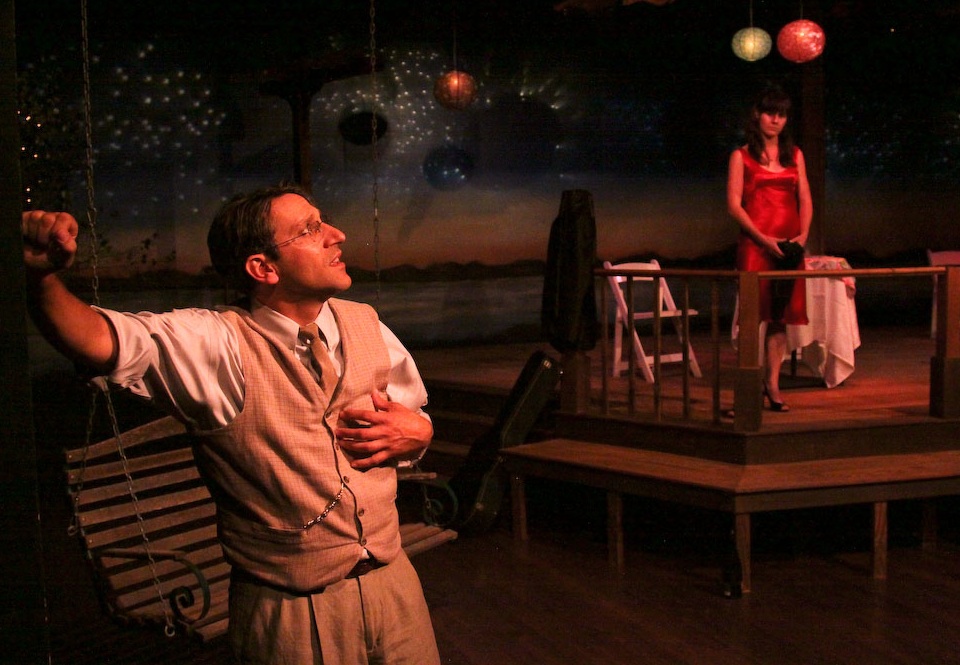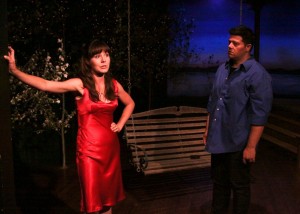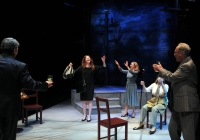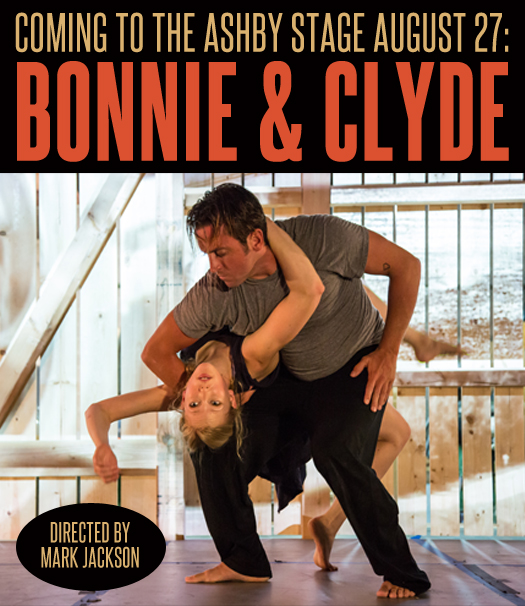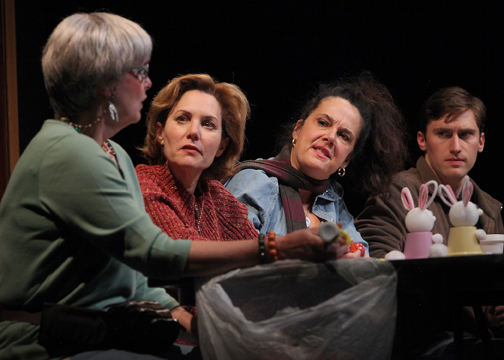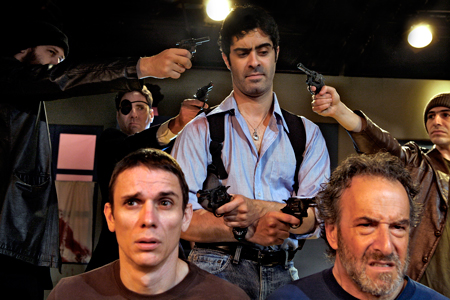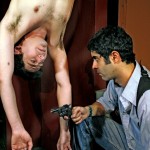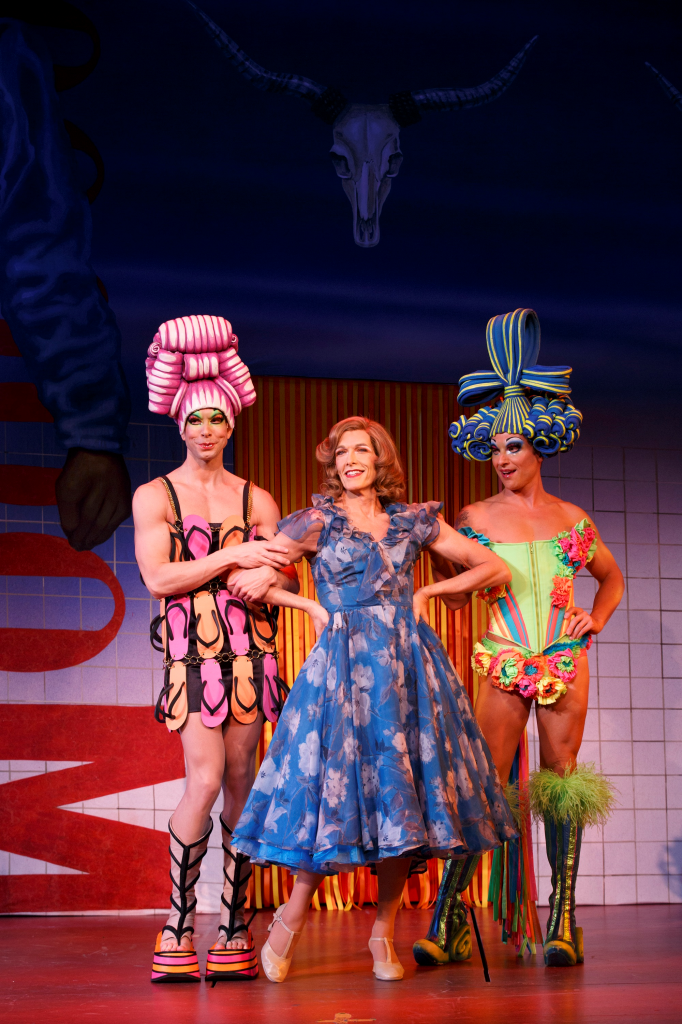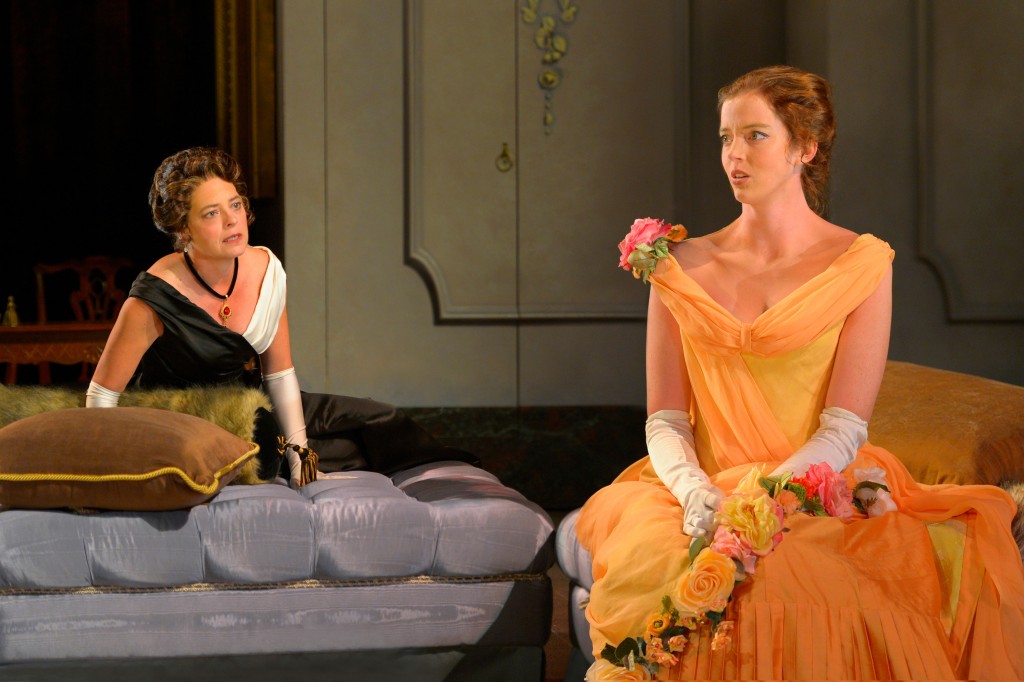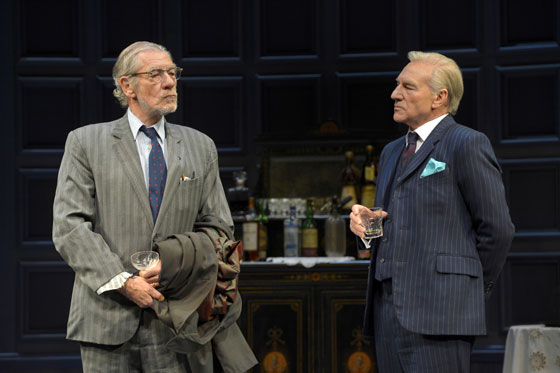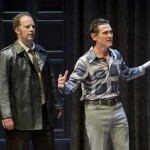Jeff Cote as The Narrator (others) and Sami Granberg as Kari on the set of The Pavilion playing at the Cinnabar Theatre in Petaluma. All photos by Eric Chazankin
THE PAVILION:Romantic Comedy. Written by Craig Wright and directed by Tara Blau. Cinnabar Theatre, 3333 Petaluma Blvd North, Petaluma, CA 94952. 707-763-8920 or www.cinnabartheater.org. September 6-22, 2013
THE PAVILION at Cinnabar is an audience pleaser.
For the opening of their 41st Season Cinnabar Theatre has resurrected a play written in 2000 and produced in community theatres around the country before making it to Off-Off Broadway at the Rattlestick Theatre in 2005. It now graces the stage at Cinnabar in Petaluma where an appreciative audience gave it a partial standing ovation.
Opening nights at Cinnabar often receive standing ovations since they have a very loyal following who appreciate the professional productions. So it is with The Pavilion where a cast of three keeps the audience amused for the better part of two hours including an intermission. It is well worth a visit to see this particular show and plan to see the remainder of the 2013-2014 season. Upcoming are La Cage aux Folles, Jacques Berl is Alive and Well and Living in Paris, Of Mice and Men and The Marriage of Figaro.
Because Author Wright uses a narrator (Jeff Cote) and the action takes place in a small town where everyone knows everyone else the play has been described as a modern day Our Town. That is insufficient to justify it as such since the narrator is also a metaphysical conjuror who creates the universe ‘drop by drop’ and morphs into multiple inhabitants whereas Thornton Wilder’s Stage Manager only comments on the lives of the characters. Time and its inevitability is a major theme of the play. There is more than a touch of pretention as we are inundated with ancient Greek philosophy of Diogenes (There is nothing permanent except change) and Heraclitus (Change is central to the universe. You could not step twice into the same river; for other waters are ever flowing on to you.).
With that observation out of the way one can appreciate the story line and the acting. The local is the mythical Pine City, Minnesota where the 20th High School reunion is taking place in the venerable rundown Pavilion that will be razed by fire allowing the local fire department to hone their abilities.
Twenty years ago Peter (Nathan Cummings) and Kari (Sami Granberg) were High School lovers. When Kari became pregnant Peter abandoned her going off to college. We learn that Kari has had an abortion and later married unhappily a financially secure local man. Peter who is a successful psychologists with a checkered past of failed relationships arrives for the reunion hoping for forgiveness and rekindling of their romance. He has written a song specifically for Kari that he hope will due the trick. He most likely he is unaware of the truism of Thomas Wolff’ s first and last novels, “Look Homeward Angel” and “You Can’t Go Home Again.”
Kari’s initial reactions are predictable and volatile. Beautiful Sami Granberg’s adroit shift of personalities from the angry personae to possible forgiveness smacks of reality. This after she receives advice from her former classmates such as “In two words: Never Forgive!” Peter’s gentle persistence and Kari’s weakening under the influence of champagne (in vino veritas?) seems contrived but maybe it was the prophetic shooting stars influencing the universe.
The narrator Jeff Cote dominates the entire first act with his ingenious, facial movements, body language and voice patterns becoming a myriad of local denizens both male and female as they interact with Kari, Peter and the audience. The second act belongs to Kari and Peter with rather saccharine dialog becoming a bit maudlin but seemingly appropriate since it is an unresolved love story.
Nathan Cummings adroitly underplays his role as Peter and has his turn upon the stage when he frantically and unsuccessfully attempts to set back time using the identical words used by the narrator in the opening scenes. He has an excellent singing voice for the charming original song “Down in the Ruined World.”
Recommendations: Well worth seeing. Make an evening of it with dinner in historic Down Town Petaluma at Cucina Paradiso a short distance from the theatre.
Kedar K. Adour, MD
Courtesy of www.theatreworldinternetmagazine.com


